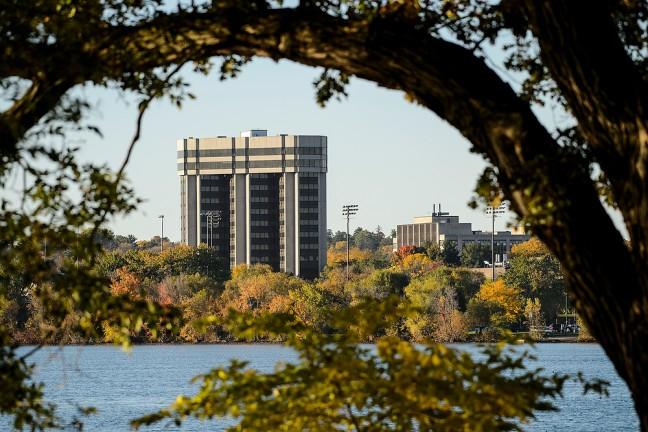Reality is somber these days for those who view secondary education as a place for intellectual growth and the achievement of higher understanding. College students complain of “useless”, i.e. non-STEM, classes, while universities like University of Wisconsin-Stevens Point trim entire disciplines wholesale from their curriculum. UW-Madison is a bit of a hold-out, but even they are now attempting to couch required classes in terms of employability and integrate the humanities into the money-making majors. Just three years ago, Gov. Scott Walker tried and failed to get phrases like “the search for truth” and “improve the human condition” removed from the university’s mission statement.
It’s a sorry state of affairs, but one can’t fix anything with laments. Why is university education trending this way? To find the answer, we must look beyond Madison and even beyond the state.
Point Counterpoint: Tony Evers is the change Wisconsin has been waiting for
Though college still retains, to some extent, the image of an institution dedicated to intellectual inquiry, students who actually experience it know the purpose of their attendance. A vast majority report that they primarily went to college to improve their job prospects. Although learning about interesting things comes in at second, the order suggests that students are attending school for economic reasons with intellectual development as a bonus, not the other way round. If we were to put on our cynic’s glasses for a second, we might see it doesn’t really matter to students what they learn during college, because the whole point is what happens once they tuck that degree safely into their resumes. Learning interesting things and developing a deeper understanding of the world are almost incidental — just things that are done when they have some time off from career-prepping.
And that’s just the students, it doesn’t mention at all the posture of the university. Take David Krakauer, former director of the Wisconsin Institute of Discovery, for instance. He once claimed that in the 21st century “undergraduate education … is no longer a source of revenue.” That is to say, the university’s already limited ability to support itself with student or public funding, which would allow it to remain a nominally independent institution run for the public good, is becoming essentially non-existent. All this, despite constantly-increasing tuition!
Lack of psychiatrists in Wisconsin, unsatisfactory mental health services on campus fail students
The response to this grim analysis has seen the university continue to embed itself, perhaps inextricably, in the fabric of the global economy. Institutions like Wisconsin Alumni Research Foundation help shuttle research directly from the public laboratory into private production. Collaborations like the Foxconn Institute deal showcase the role the University of Wisconsin envisions for itself — as another step in the production line, manufacturing working professionals.
And really, how else could they view themselves if they want to survive? They are under tremendous pressure from all sides to justify the form of their existence — from politicians who abhor the idea of a public anything because it affronts their cruel egoism, to students who can’t pay off their student debt with worldliness. They are like a river rock made smooth by the pounding waters around them. All that is vestigial has been or will be washed away.
This process is also self-reinforcing — because the university is just a connecting pipe that cannot survive on its own, it can only train its students to fit into place at businesses or within industry. When schools graduate students that question the institutions around them or don’t fit neatly into their economic places, they are quite literally producing products with no buyer. On the other hand, those who fit the mold excel and reinforce the system that delivered them.
The path toward an austere, commodified and commodifying education system is only an inexorable one within our present conditions. Universities could be places where students didn’t have their every action dictated by the debt they will incur or how they will answer for something on a resume. The critical issue is building a society where one can have a good life without going to college and, on the flip side, eliminating the student debt which sometimes makes it impossible to live a good life because one went to college. If universities are no longer forced to hold the keys to a comfortable future, they are freed to become what they were intended to be. They can live up to the words they have inscribed in bronze and marble around their campuses. For those who dream of that world, don’t despair. Examine the situation with clear-eyed honesty. Look beyond the university and work to build a better future for the students who have yet to come.
Sam Palmer ([email protected]) is a senior majoring in biology.














